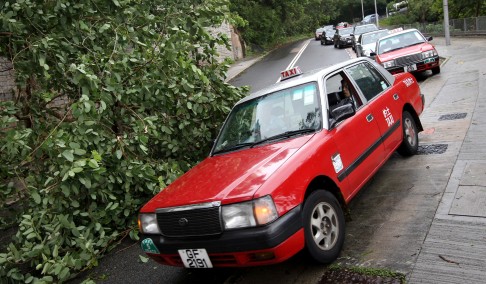
Why do some restaurants ban tipping? It doesn't ensure good service, or reward it
Is it possible, for example, that the Hong Kong taxi service would improve if drivers got bigger tips?

To tip or not to tip, that is the question posed and answered by the well known New York restaurateur Danny Meyer who is rolling out a no tipping policy in his restaurants while raising both wages for his staff and prices for his customers. His initiative, although not pioneering, has made news around the world because it raises some interesting questions about the service industry.
As an infinitely more modest restaurateur myself I can confirm that tipping is a fraught issue for both customers and staff. However Meyer’s explanation of why he is moving in the no tipping direction is far from satisfactory. He claims, for example, that staff are barred by law from establishing a tipping pool enabling both kitchen and floor staff to share tips. This is misleading as New York law on tip pooling is specifically designed to prevent employers from getting their hands on tips that should go to the staff. Pooled tips that only go to the staff should present no legal problem.

Tipping is something of an anachronism because there are few other forms of employment where employees are directly rewarded by customers
Secondly, Meyer chooses not to mention that the new tipping policy comes ahead of changes to New York’s minimum wage law, which would require an upward revision in wages for some of his staff, so there seems to be something beyond coincidence here.
However the very problems with Meyer’s explanation of his new policy illustrate many of the other issues raised by the tipping conundrum. The most frequent charge against restaurant owners is that getting customers to provide tips is simply a licence to pay less in wages.
There is a connected issue here because some restaurants, lamentably many of which are in Hong Kong, add a service charge to a bill and do not pass it on. And there are the restaurants that also do not pass on the tip element of a credit or debit card payment. In other words not only are staff deprived of tips but customers are misled into thinking that rewards, given in good faith, are delivered to their intended targets.
Then there are all the questions about whether tipping is really an incentive for better service. The origins of the word tip supposedly date back an 18th century coffee house, which had a bowl for cash offerings, marked ‘To Insure Promptitude’.
History does not record whether this device achieved faster service but there is a widespread assumption that anticipation of an additional financial reward encourages staff to go that extra mile. If this is so, how do we explain that some of the best service in the world is to be found in Japan where tipping is highly unusual?
Tipping is something of an anachronism because there are few other forms of employment where employees are directly rewarded by customers, as opposed to receiving an adequate remuneration package from their employers. Having to rely on tips for a living wage is also seen as being demeaning.
Why, also, is tipping largely confined to restaurants and bars when other service providers, such as nurses or even garage mechanics, are arguably equally or more deserving?

And then are those studies that show that attractive waiting staff or staff dressed in a particular way are more likely to get better tips than others. This is not a reward for better service but for better looks.
This all suggests that a perfectly reasonable case can be made for abolishing tipping. However what looks good on paper is rather more difficult to implement at the coalface, or in this instance at the service hatch.
The reason most restaurants will not contemplate banning tips is that they would face both a customer and staff revolt. Many restaurant customers actively like to give tips because food service is or should be distinctly personal. And many restaurant staff like the recognition that tipping bestows. Meanwhile there is no doubt that this practice can save on staff costs and in the tight margin world of restaurants, cost savings are rarely passed up.
The whole tipping issue highlights some fundamental questions of how to achieve motivation in the service industries. Is it possible, for example, that the Hong Kong taxi service would improve if drivers got bigger tips? Maybe tipping could be introduced to improve the notoriously bad service provided by Hong Kong Telecommunications, and so on.
However tips are unlikely to fix these problems because good service grows out of a service culture in which money certainly plays a part but not necessarily the biggest role.
Countries, companies and organisations with good service records generally achieve them because they provide a form of employment in which the very nature of these jobs has been elevated and those employed in them feel they are doing something worthwhile, but it takes quite a lot of effort to make worthwhile feel worthwhile.
Stephen Vines runs companies in the food sector and moonlights as a journalist and a broadcaster